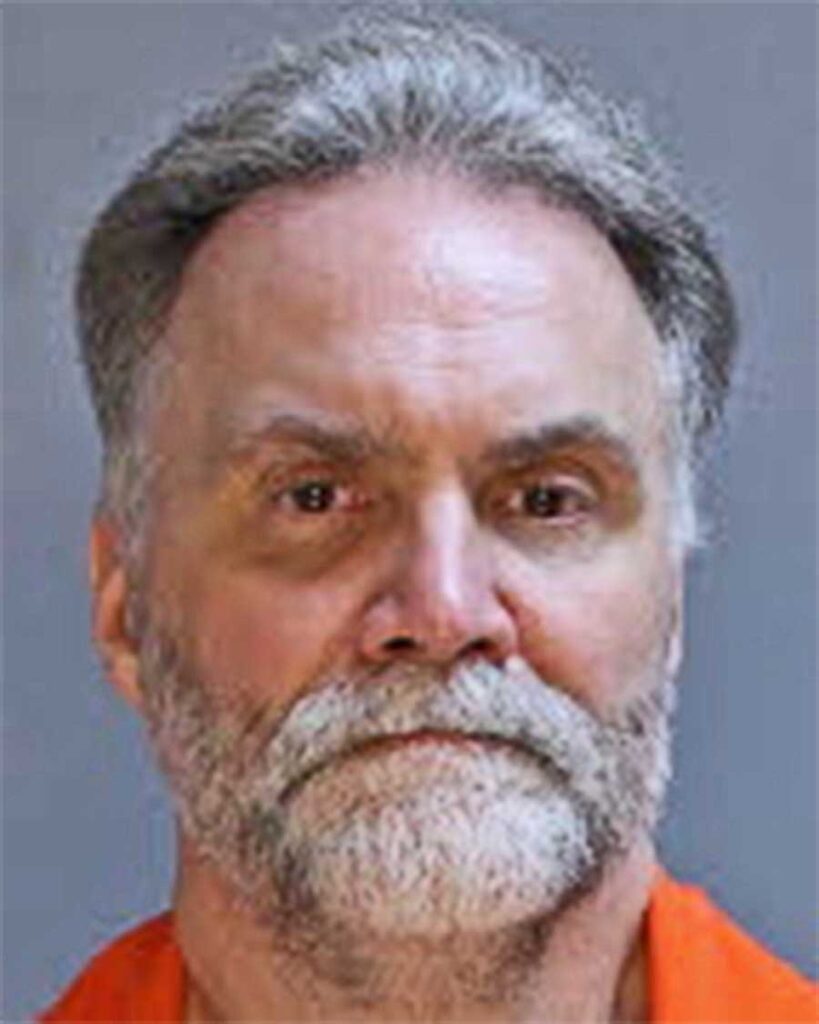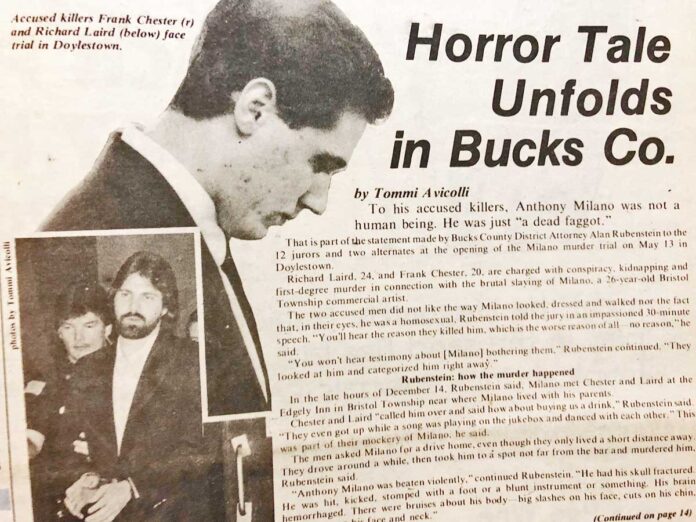Richard R. Laird, who’s been on death row for 32 years for the gruesome killing of gay artist Anthony Milano, last week asked an appeals court to vacate his death sentence.
In December 1987, Laird and his accomplice Frank R. Chester kidnapped Milano, 26, to a wooded area in Tullytown, Pa., and slashed his throat so many times that Milano’s head was nearly severed.
The case became a cause celebre in the local LGBT community because both defendants voiced homophobic slurs inside a Bucks County tavern, prior to kidnapping Milano and killing him. Prosecutors described the case as a “hate crime,” even though a federal hate-crime statute protecting the LGBT community wasn’t enacted until 2009.
In 1988, Laird and Chester were sentenced to death by a Bucks County jury. But both men eventually were granted new trials due to faulty jury instructions.

Rather than retry Chester, Bucks County authorities agreed to remove him from death row to the general prison population. In return, Chester agreed to serve a life sentence without the possibility of parole. Chester, 51, is currently incarcerated at a state prison in LaBelle, Pa.
However, no such deal was offered to Laird, and after a second trial in 2007, he was resentenced to death.
In a 204-page appeal filed Aug. 28 with the Third Circuit Court of Appeals, attorneys for Laird emphasized the sexual abuse he allegedly experienced from his father as a young boy. According to the appeal, Laird was continually raped by his father between the ages of five and 11. Laird’s father, Richard Laird Sr., is deceased.
The appeal contends that jurors in 2007 weren’t informed about the severity of Laird’s sexual abuse. Instead, they apparently thought Laird was “a mean drunk who hated gay people and recognized [Milano] to be one of them.” If jurors realized that Laird’s homophobia was linked to his father’s sexual abuse, they may have spared his life, according to the appeal.
Laird lacked effective assistance of counsel because his trial attorneys failed to adequately investigate his abusive background and convey it to jurors. Thus, Laird’s constitutional right to a fair trial was violated and his death sentence should be vacated, according to the appeal.
Laird’s appeal was initially filed on Aug. 21. But after Laird’s attorneys were questioned by a PGN reporter about their use of the term “homosexual” throughout the appeal, they refiled the appeal on Aug. 28 without the problematic language.
Laird’s appellate attorneys, Joseph W. Luby and Christi A. Charpentier, had no comment for this story.
Bucks County District Attorney Matthew D. Weintraub issued the following statement about Laird’s appeal: “We remain just as committed to the appeal and prosecution of Richard Laird for his hate-based murder of Anthony Milano now as much as ever. We do so in order to serve justice, and to honor Mr. Milano’s memory.”
A spokesperson for Weintraub was asked if an agreement with Laird would be possible — similar to the agreement with Chester — allowing Laird to leave death row if he agreed to serve a life sentence without the possibility of parole. Laird, 57, is currently on death row at a state prison in Skippack, Pa.
“The office can’t comment on that [agreement possibility] at this time,” Weintraub’s spokesperson said, in an email. “But we will be addressing it through the appropriate legal process.”
Justin F. Robinette, a local civil-rights attorney, has been following Laird’s case. “I’m glad the references to ‘homosexual’ were deleted from Mr. Laird’s appeal,” Robinette told PGN. “But I’m not comfortable with his apparent gay-panic defense. Mr. Laird was rightfully subject to the death penalty for this crime. With that said, after 32 years of protracted litigation, I’d like to see an end to it. If Mr. Chester was offered life imprisonment without the possibility of parole, why not consider the same deal for Mr. Laird?”

